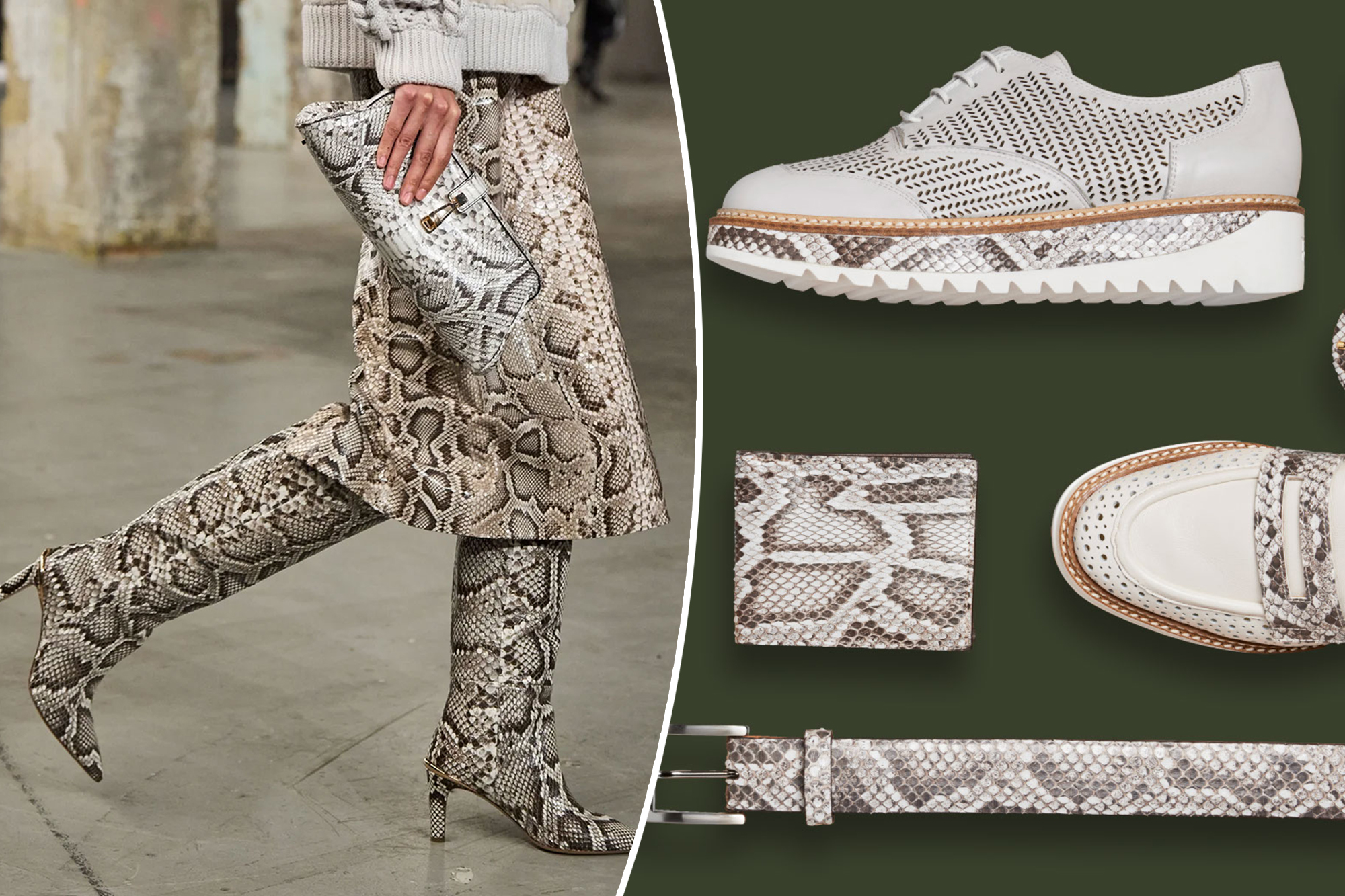Lifestyle
Florida Turns Invasive Pythons into Luxury Fashion Goods

Florida is adopting an innovative approach to combat the invasive Burmese python, aiming to transform this ecological threat into luxury fashion items. Governor Ron DeSantis announced the initiative, which involves a partnership between the Florida Fish and Wildlife Conservation Commission (FWC) and Miami-based textiles manufacturer Inversa. This collaboration seeks to remove pythons from the Everglades and convert their skins into high-end products such as boots, bags, and belts.
The program has already made significant strides, with over 1,000 pythons removed between May and July 2025—nearly three times more than during the same period in 2024. In fact, July alone saw the removal of 748 snakes, surpassing the entire total from the previous year. Governor DeSantis stated, “FWC’s partnership with Inversa has supercharged the removal of invasive Burmese pythons from the Everglades.”
With a state investment of $2 million, this initiative builds on the existing Python Action Team – Removing Invasive Constrictors (PATRIC) program, which has been at the forefront of battling python infestations since 2017. Inversa is not only responsible for processing the python hides but also manages the removal efforts. The company currently employs around 50 professional python hunters who were previously affiliated with the FWC, effectively creating a specialized team dedicated to this cause.
Each python hide removed aids in protecting up to 460 native animals that the snakes would typically prey upon, improving the chances of survival for 39 endangered species. “These things will take out a deer,” DeSantis remarked, highlighting the impact of the pythons on local wildlife.
In a notable shift within the fashion industry, Inversa aims to redefine the notion of exotic leathers. With many luxury brands like Chanel and Burberry moving away from exotic skins due to animal welfare concerns, Inversa’s model focuses on utilizing invasive species. CEO Aarav Chavda describes their products as “ethical exotics.” Inversa’s python creations made their debut on the runway at the Gabriela Hearst and KHAITE 2025 fall shows, showcasing jackets and handbags crafted from the sustainably sourced material.
To date, Inversa claims to have removed over 50,000 invasive animals from various ecosystems worldwide, including lionfish and silverfin fish, and transformed them into luxury leather goods available in a spectrum of colors. Chavda emphasized the role of technology in enhancing their operations, including the use of AI-powered aerial detection tools to locate pythons in challenging terrains.
Burmese pythons were first introduced to Florida in the 1970s through the illegal pet trade and have since proliferated in the Everglades, becoming apex predators with no natural enemies. A single female can lay up to 100 eggs, leading to a dramatic decline in native wildlife populations. Since 2000, more than 23,000 wild pythons have been removed, yet the challenge persists as they continue to adapt and expand their range.
The partnership with Inversa not only enhances python removal efforts but also significantly reduces the administrative workload for the FWC by 89%. Additionally, python hunters have seen their pay increase by approximately 60%, further incentivizing participation in the removal program. FWC Chairman Rodney Barreto recognized the collaboration’s achievements, stating, “Our partnership with Inversa and the PATRIC program highlights the milestones we’ve achieved against the invasive Burmese python, which will benefit generations to come.”
Complementing this initiative, the Florida Python Challenge continues to engage the public in removal efforts, attracting participants from across the United States and Canada. This year, 934 participants helped remove 294 pythons during the 10-day event. Furthermore, additional federal land in Big Cypress National Preserve has been opened for python removal, increasing access to vital areas for hunters.
Governor DeSantis is encouraging continued funding for these removal efforts, noting that the early results demonstrate the potential of public-private cooperation. “It’s been a pleasant surprise to see the progress,” he said, adding that the products resulting from this initiative are indeed fashionable. As the state of Florida innovatively addresses its invasive python problem, consumers can contribute to conservation efforts by purchasing luxury goods made from these apex predators.
-

 Science2 weeks ago
Science2 weeks agoIROS 2025 to Showcase Cutting-Edge Robotics Innovations in China
-

 Politics2 weeks ago
Politics2 weeks agoJudge Considers Dismissal of Chelsea Housing Case Citing AI Flaws
-

 World2 weeks ago
World2 weeks agoBravo Company Veterans Honored with Bronze Medals After 56 Years
-

 Top Stories2 weeks ago
Top Stories2 weeks agoIndonesia Suspends 27,000 Bank Accounts in Online Gambling Crackdown
-

 Lifestyle2 weeks ago
Lifestyle2 weeks agoStone Island’s Logo Worn by Extremists Sparks Brand Dilemma
-

 Sports2 weeks ago
Sports2 weeks agoMel Kiper Jr. Reveals Top 25 Prospects for 2026 NFL Draft
-

 Health2 weeks ago
Health2 weeks agoStartup Liberate Bio Secures $31 Million for Next-Gen Therapies
-

 Health2 weeks ago
Health2 weeks agoTop Hyaluronic Acid Serums for Radiant Skin in 2025
-

 World2 weeks ago
World2 weeks agoHoneywell Predicts Record Demand for Business Jets Over Next Decade
-

 Politics2 weeks ago
Politics2 weeks agoNew Jersey Voters Urged to Register Ahead of November Election
-

 Lifestyle2 weeks ago
Lifestyle2 weeks agoMary Morgan Jackson Crowned Little Miss National Peanut Festival 2025
-

 Sports2 weeks ago
Sports2 weeks agoYamamoto’s Mastery Leads Dodgers to 5-1 Victory in NLCS Game 2









